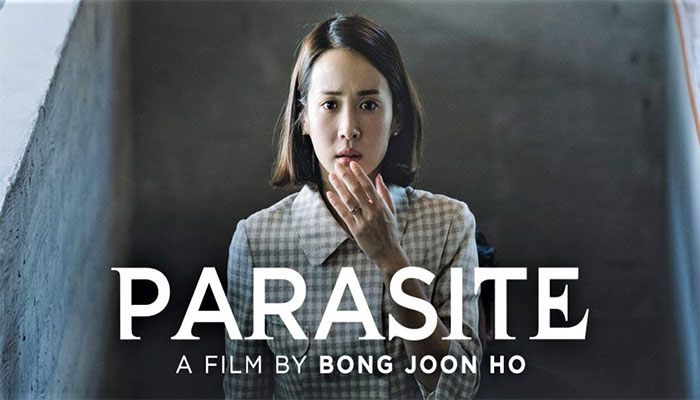Can you still love a piece of art if you condemn the actions or views of its creator? At what point should we stop consuming the art of a person alleged to have behaved badly?
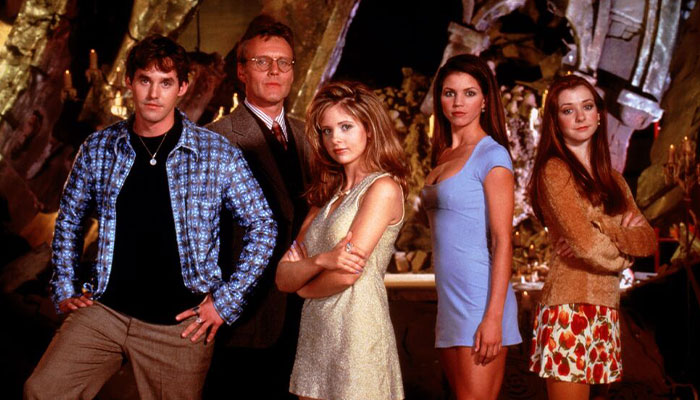
Speaking out: Castmembers of Buffy, including Sarah Michelle Gellar (centre) who has supported Charisma Carpenter's (second from right) statement alleging she had been the victim of bullying by Whedon.
Such questions keep arising as celebrities from Ellen DeGeneres to J.K. Rowling fall foul of fans' expectations, the former for an alleged toxic work environment, the latter for her stance on transgender people.
And now, fans of Buffy the Vampire Slayer and Angel may have been prompted to reassess their feelings, with revelations about the toxic workplace culture allegedly created by series’ creator Joss Whedon emerging recently. Charisma Carpenter, who played fan favourite Cordelia Chase on both Buffy and Angel, took to Twitter and Instagram to release a statement alleging that she had been the victim of bullying and cruelty by Whedon.
Carpenter alleges that Whedon acted particularly poorly in response to the news of Carpenter’s pregnancy, asking her if she was planning to ‘keep’ the child and eventually writing her off the show. At the time of writing, Joss Whedon has not responded to these allegations.
Rumours have circulated amongst Buffy and Angel fans for more than 20 years that Carpenter was fired for falling pregnant.
Other actors involved in the series have come to Carpenter’s defence. Amber Benson (Tara Maclay) released a statement in support of Carpenter, in which she claims that she is still processing the abuse she experienced on the set 20 years later.
Sarah Michelle Gellar (Buffy Summers) and Michelle Trachtenberg (Dawn Summers) have also released statements in support of Carpenter, with Trachtenberg revealing that Whedon’s behaviour had been particularly inappropriate given that she was a teenager when shooting Buffy in the late 1990s and early 2000s.
Shocking, but not surprising
For dedicated fans of the series, these revelations were shocking but not surprising. Rumours have circulated amongst Buffy and Angel fans for more than 20 years that Carpenter was fired for falling pregnant.
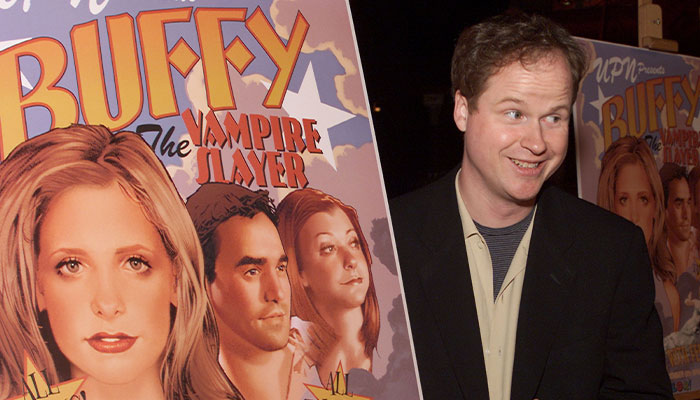
Creator conflict: Joss Whedon in Buffy days ... criticisms of Whedon have come from several quarters, raising the question for fans about how they should respond.
A particularly strange storyline, in which Carpenter’s character Cordelia sleeps with and is impregnated by Angel’s son, Connor, has long been interpreted as an act of vengeance against Carpenter.
After giving birth to an adult demon, Jasmine (it’s a long story!), Cordelia falls into a coma from which she emerges for one final episode before she dies. It was a sad ending for one of the show’s most beloved characters, and Carpenter’s revelations have strengthened the feeling that Whedon let personal animus towards one of his actors influence the storyline.
The demise of Cordelia Chase, who had been the heart and soul of Angel, has long been lamented by fans, who have also noted the troubling gender politics of a storyline that represented a woman being impregnated against her will.
We do teach Chaucer, even though he may have been accused of rape. We teach T.S. Eliot because his work is important, but we also know that he was a racist.
These are also not the first allegations of improper behaviour levelled against Whedon. Carpenter was writing in support of Ray Fisher, who has also spoken out about the workplace culture that Whedon created on the set of Justice League. Whedon’s former wife, Kai Cole, has also alleged that Whedon’s feminism is a ruse designed to deflect from his bad behaviour.
The question for fans then becomes: what do we do about these allegations?
It is a question we wrestle with frequently in my discipline, literary studies. We do teach Chaucer, even though he may have been accused of rape. We teach T.S. Eliot because his work is important, but we also know that he was a racist.
I could give many such examples and I am not sure we have ever successfully wrestled with this moral quandary.
When art does not imitate life
Time seems to be an issue here. We are far more willing to see the work as separate from its creator if it is sufficiently far in the past. But how far is far enough? Buffy was created more than 20 years ago, but a lot of people (myself included) feel quite squeamish about watching Woody Allen or Roman Polanski films, despite their artistic merit.
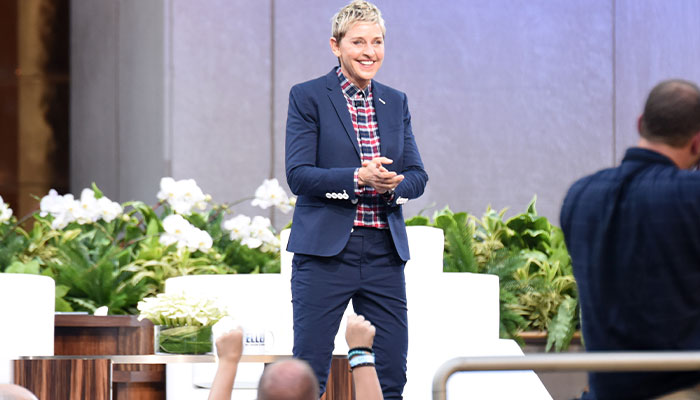
Before the storm: Ellen Degeneres on the set of her daytime talk show, before a litany of staff members alleged that she created a toxic workplace culture.
We are sometimes tempted to say that something was ‘of its time’ or write off poor behaviour on the part of the artist as if it is part of the artistic temperament, whatever that might mean.
Here, though, we have something more specific and troubling: an allegation that the workplace in which the art was made ran counter to the explicit message of the work itself.
The allegations against Whedon are reminiscent of those levelled against Ellen DeGeneres in 2020. A litany of former staff members have accused Ellen of workplace bullying, alleging that she created a toxic workplace culture. Ellen addressed these accusations on air at the start of the latest season of The Ellen Show.
However, as with Whedon, these allegations were not a revelation: whispers about Ellen’s behaviour towards staff members were widely circulated for years before her public apology.
The question we keep coming back to is do we need to separate art from artist, and why are we OK doing so in some instances but not others?
Are Buffy and Angel now cancelled?
The problem for Harry Potter fans
The questions of whether you can still love a piece of art if you condem its creator's actions, and at what point you should stop consuming it, are especially of interest to Harry Potter fans who have struggled with the question of how to think about these novels in the light of J.K. Rowling’s recent anti-trans comments.
More recently, it has been announced that there is a game being developed that will allow you to virtually live in the world created by J.K. Rowling, one that has been years in development. Is it right to go out and buy this game, even if we love imagining that we lived at Hogwarts? Or do we ‘cancel’ it, knowing the long lead time and years of effort that the developers, who do not hold those views, put into it?
I, for one, will be thinking about the talented women writers, actors and artists who worked together on the show the next time I catch an episode.
There’s a good argument to be made here that the consumption of these products will platform the artist and her views and be used to further a specific harm to a vulnerable group.
For Buffy and Angel fans, it is especially galling to consider these allegations given that Buffy was such a ground-breaking feminist show. The spectacle of tiny little blonde Buffy Summers kicking vampire ass was always a large part of its appeal.
The series was based on the premise that it was a subversion of horror movie tropes: instead of the young blonde being killed by the monster, the young blonde kills the monster. Buffy Summers could handle high school and saving the world.
That Joss Whedon allegedly objected to a cast member becoming pregnant suggests that his feminism may only have been skin-deep. Even though Angel had featured a pregnancy story before, a real-life pregnancy was just too real and messy to accommodate on the show, it seems.
One of Carpenter’s allegations against Whedon is that he made disparaging comments about her weight gain during her pregnancy. It is very disappointing to think that a showrunner whose show was premised on subverting expectations about what women’s bodies could do would at the same time be guilty of this sort of behaviour.
Charisma transcends her Buffy role
Charisma Carpenter, cast as Cordelia, was initially given little to work with other than being the one-note rich and beautiful Valley girl with a mean streak. It took skill with such material to convey that this character might have hidden depths and something worth exploring.
Carpenter was inspired to go public with her story in response to the #MeToo and #TimesUp campaigns, and this will live on well beyond the shabby ending that her character was given. Arguably she has transcended her role at least twice now.
So can we keep the feminism, even with what we think we know about its creator?
It is, perhaps, comforting to contemplate the fact that the Buffyverse is bigger than just Joss Whedon. Hundreds, perhaps thousands, of artists worked together to create Buffy, and I, for one, will be thinking about the talented women writers, actors and artists who worked together on the show the next time I catch an episode.
- Banking anti-misconduct rules bring bankers into line: new research
- How we can stop animals making us sick
While there has been a lot of discussion about cancel culture recently, it’s important to remember that Ellen DeGeneres has continued to work, and people will continue to watch Joss Whedon shows and movies. They are still tremendously successful and wealthy, even if their reputations have been tarnished.
It is unlikely that we could ‘cancel’ them, even if we tried. Does anyone really believe that Joss Whedon, director of The Avengers, will never direct again?
Maybe the best we can do in this case is to ask the victims what they want. Sarah Michelle Gellar has said that she always wants to be associated with Buffy Summers, but not with Joss Whedon.
I am still not sure what the right answer is but I am hoping to keep Buffy, the feminist hero of my childhood, and somehow lose Joss Whedon.
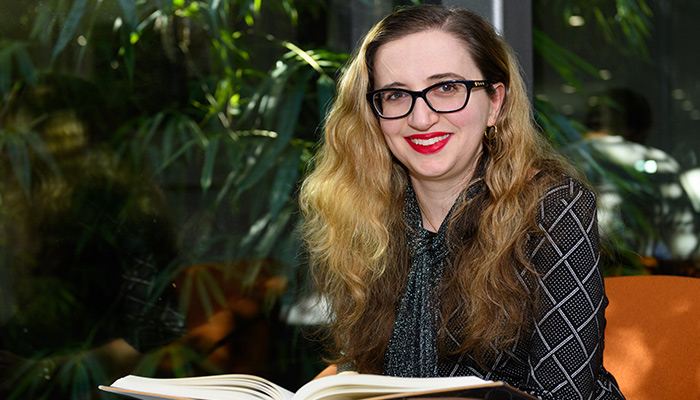
Dr Stephanie Russo (pictured) is a Senior Lecturer in the Department of Media, Communications, Creative Arts, Language and Literature.


